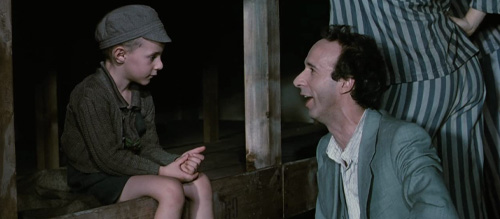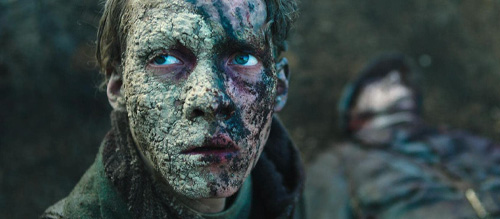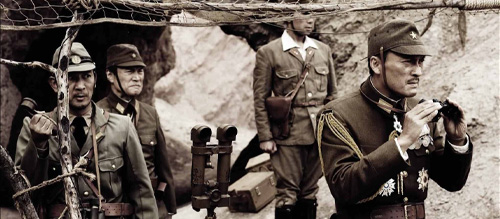Every Non-English Language Best Picture Nominee Ranked
Over 93 years and 591 nominations, only one non-English language nominee for the Academy Award for Best Picture (Parasite) has walked away with the top prize. How messed up is that? All Quiet on the Western Front has an outside chance of becoming the second, but it demonstrates almost a century of blinkered, unimaginative and retrograde Academy voting very much overdue a major shakeup.
True, since 1947, “World Cinema” has had its own category, Best International Feature, that has allowed for such films as Rashomon, Fanny and Alexander and The Lives of Others to have their time in the spotlight, but this arguably also ghettoises countless nationalities and cultures and their many and varied works of visual art.
14 films in languages other than English have been nominated for Best Picture, coming from counties as diverse as Sweden, Mexico, Italy, Japan and even the USA (from different cultural perspectives of course), but how do they compare? Most of these are great, but how many should have probably beaten the English-language winner in their respective years? We at The Film Magazine have done the hard work for you with this Oscars edition of Ranked: Every Non-English Language Best Picture Nominee Ranked.
Follow @thefilmagazine on Twitter.
14. Life is Beautiful (1997)

Receiving similar criticism for trivialising the rise of fascism in the 1930s as Jojo Rabbit did almost 20 years later, Life is Beautiful begins as a joyous, saccharine story full of goofy hijinks then undergoes a jarring but appropriately dark transformation at the halfway point when the setting shifts to a concentration camp.
Writer-director-star Roberto Benigni’s recognition for his performance as an impish, dedicated father makes him one of only two performers to win the top acting prize not speaking English (another disappointing Academy trend). This is well-deserved as it is Benigni’s manic, mischievous and ceaselessly positive Guido that keeps the film’s heart beating and says so much behind his unwavering forced smile.
It’s debatable whether or not the comedy in juxtaposition with the events of the very bleak second half of the film really meshes, or whether Guido turning his family’s concentration camp internment into a game for the benefit of his son is entirely believable to the extent he gets away with it, but you can’t deny the film’s honest soul.
Shakespeare in Love won Best Picture this year, because the Academy likes a crowd-pleasing costume drama.
13. All Quiet on the Western Front (2022)

All Quiet on the Western Front Review
Germany’s first Best Picture nominee re-adapts a classic work of literature and re-examines a period of historical national trauma with a modern eye, executing its visceral spectacle with impressive technical gloss.
Edward Berger’s film never softens the blow of the immediate, brutal imagery of warfare. And, coupled with a pounding, oppressive industrial score from Volter Bertelmann, and a talented young cast led by Felix Kammerer who we follow from bright-eyed schoolboys to shells of men scrabbling for survival in the WWI trenches, you will be left reeling.
War films have always been popular with the Academy and inevitably you do find yourself comparing this to the original Hollywood adaptation that was awarded Best Picture. The new film doesn’t hit any harder than Lewis Milestone’s by showing more, and its new final act that neither sticks to the novel ending or history, really, in the end lacks some of the simple power that it should have.
Recommended for you: 2023 Oscars Best Picture Nominees Ranked
12. Letters from Iwo Jima (2006)

Not eligible for Best International Feature due to its American production, Clint Eastwood’s film portrays Japanese soldiers defending the island of Iwo Jima at the end of WWII, the flip side of which had already been depicted in Eastwood’s Flags of Our Fathers in the same year.
This is another mournful, desaturated analysis of war. Signs of Japan’s slow but inevitable defeat keep creeping in on the periphery before becoming inescapable. Ken Watanabe’s General Kuribayashi (a real historical figure whose writing inspired the film) is a traditionalist, an old-fashioned lead-from-the-front soldier born in the wrong century, and Watanabe’s performance is dignified and respectful.
After a fairly slow build, about 45 minutes in all hell breaks loose in some flawlessly executed, unflinchingly brutal battles before each beleaguered soldier’s past experiences are fleshed out.
The Departed ended up winning this year, because the Academy realised in a panic that Scorsese didn’t have an Oscar yet.

